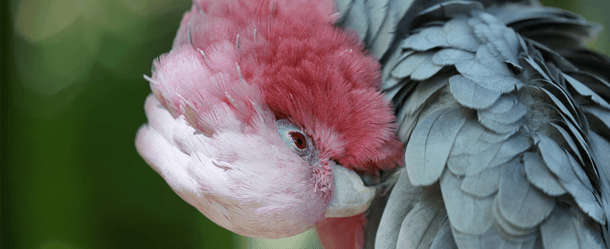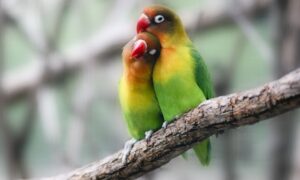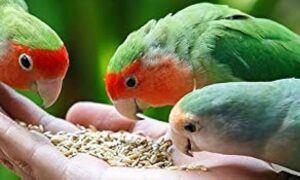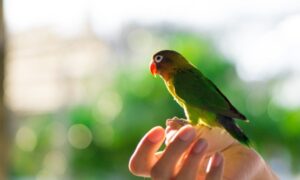Bird Illnesses Overview – Common Avian Health Problems
Birds are fascinating creatures that bring joy and beauty to our lives. However, just like any other living beings, they can fall ill. Understanding the common avian health problems can help bird owners provide timely care and prevent serious complications. In this article, we will explore various bird illnesses, their causes, preventive measures, and available treatment options.
Introduction (Bird Illnesses Overview)
Avian health is of utmost importance for bird enthusiasts and pet owners. Ensuring the well-being of our feathered friends requires knowledge about common illnesses and the necessary steps to prevent and treat them. Let’s delve into some of the most prevalent bird health issues.
Respiratory Issues (Bird Illnesses Overview)
Respiratory problems are among the most common illnesses affecting birds. Birds with respiratory issues may exhibit signs such as sneezing, coughing, wheezing, nasal discharge, and difficulty breathing. These problems can be caused by bacterial or viral infections, environmental factors, or allergens. To prevent respiratory illnesses, it is essential to maintain a clean and well-ventilated environment for birds, provide proper nutrition, and minimize exposure to toxins.
Digestive Disorders
Digestive problems can significantly impact a bird’s health. Indicators of digestive disorders include changes in appetite, diarrhea, vomiting, and abdominal pain. These issues can arise due to bacterial or parasitic infections, inappropriate diet, or ingestion of toxic substances. Providing a balanced and species-appropriate diet, regular veterinary check-ups, and maintaining a hygienic living environment are crucial for preventing digestive disorders in birds.
Feather-related Conditions
Feather-related illnesses can lead to discomfort and affect a bird’s ability to fly and regulate body temperature. Feather picking, dull plumage, bald patches, and abnormal feather growth are signs of potential problems. Feather issues can be caused by nutritional deficiencies, stress, infections, or parasites. Appropriate nutrition, maintaining a stress-free environment, and treating underlying medical conditions can help resolve feather-related problems.
Parasitic Infestations
Parasites such as mites, lice, and ticks can infest a bird’s feathers, skin, or internal organs, leading to severe health issues. These pests cause itching, feather damage, weight loss, anemia, and even death. Regular veterinary examinations, proper hygiene, and periodic parasite prevention treatments are essential to keep birds free from infestations.
Nutritional Deficiencies
A well-balanced diet is vital for maintaining a bird’s health. Nutritional deficiencies can manifest as poor feather quality, stunted growth, weakened immune system, and reproductive problems. Birds require a diverse diet that includes fresh fruits, vegetables, grains, and appropriate sources of protein. Understanding their specific dietary needs and providing a nutritionally complete diet can help prevent nutritional deficiencies.
Viral Infections
Birds are susceptible to various viral infections, including avian influenza, psittacine beak and feather disease, and polyomavirus. These viruses can spread through direct contact, contaminated surfaces, or contaminated food and water. Vaccination, quarantine measures, and practicing good hygiene are essential for preventing viral infections in birds.
Bacterial Infections
Bacterial infections can affect multiple systems in birds, including the respiratory, digestive, and reproductive systems. These infections can be transmitted through direct contact, contaminated food or water, or unsanitary living conditions. Timely diagnosis, appropriate treatment with antibiotics, and maintaining proper hygiene are crucial in managing bacterial infections in birds.
Fungal Diseases
Fungal infections, such as aspergillosis, can affect the respiratory system of birds and lead to severe health problems. Poor ventilation, high humidity, and contaminated environments contribute to the development of fungal diseases. Preventive measures include maintaining clean living conditions, proper ventilation, and providing a stress-free environment for birds.
Reproductive Issues
Breeding birds can experience various reproductive complications, such as egg binding, reproductive tumors, or infertility. These issues can arise due to inadequate nutrition, genetic factors, or environmental stressors. Providing appropriate nesting materials, a balanced diet, and regular veterinary care can help prevent and manage reproductive problems in birds.
Neurological Disorders
Neurological conditions in birds can cause seizures, coordination problems, paralysis, or behavioral changes. These disorders can result from trauma, nutritional deficiencies, infections, or genetic factors. Proper diagnosis, supportive care, and implementing environmental modifications can assist in managing neurological disorders in birds.
Conclusion
Understanding the common avian health problems is vital for bird owners to ensure the well-being of their feathered companions. Regular veterinary check-ups, a nutritious diet, a clean living environment, and preventive measures such as vaccination and parasite control are crucial in maintaining bird health. By being attentive to their needs and providing timely care, we can help our avian friends lead happy and healthy lives.
FAQs (Frequently Asked Questions)
- Can birds transmit diseases to humans? Birds can transmit certain diseases to humans, particularly through direct contact with their droppings or respiratory secretions. It is important to practice good hygiene, wash hands thoroughly after handling birds, and consult a healthcare professional if any concerns arise.
- How often should I take my bird to the vet? It is recommended to schedule annual check-ups for healthy birds. However, if you notice any changes in behavior, appetite, or physical appearance, it is essential to seek veterinary care promptly.
- Are there any specific dietary requirements for different bird species? Yes, different bird species have unique dietary needs. It is important to research and provide a well-balanced diet tailored to the specific requirements of your bird species.
- What should I do if I suspect my bird has an illness? If you suspect your bird is unwell, it is crucial to consult a veterinarian experienced in avian medicine. They can provide an accurate diagnosis and recommend appropriate treatment options.
- How can I create a stress-free environment for my bird? To create a stress-free environment, provide a comfortable and appropriately sized cage, enrich the bird’s living space with toys and perches, ensure a consistent daily routine, and minimize exposure to loud noises and other stressful stimuli.
Read More:Pet Bird Care Guide: Tips for Keeping Your Feathered Friend Happy and Healthy




















